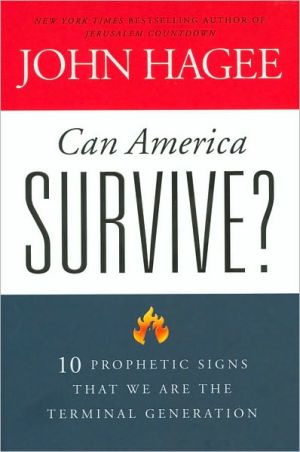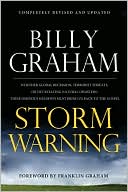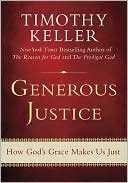Great Omission: Reclaiming Jesus's Essential Teachings on Discipleship
The last command Jesus gave the church before he ascended to heaven was the Great Commission, the call for Christians to "make disciples of all the nations." But Christians have responded by making "Christians," not "disciples." This, according to brilliant scholar and renowned Christian thinker Dallas Willard, has been the church's Great Omission.\ "The word disciple occurs 269 times in the New Testament," writes Willard. "Christian is found three times and was first introduced to refer...
Search in google:
The last command Jesus gave the church before he ascended to heaven was the Great Commission, the call for Christians to "make disciples of all the nations." But Christians have responded by making "Christians," not "disciples." This, according to brilliant scholar and renowned Christian thinker Dallas Willard, has been the church's Great Omission. "The word disciple occurs 269 times in the New Testament," writes Willard. "Christian is found three times and was first introduced to refer precisely to disciples of Jesus. . . . The New Testament is a book about disciples, by disciples, and for disciples of Jesus Christ. But the point is not merely verbal. What is more important is that the kind of life we see in the earliest church is that of a special type of person. All of the assurances and benefits offered to humankind in the gospel evidently presuppose such a life and do not make realistic sense apart from it. The disciple of Jesus is not the deluxe or heavy-duty model of the Christian -- especially padded, textured, streamlined, and empowered for the fast lane on the straight and narrow way. He or she stands on the pages of the New Testament as the first level of basic transportation in the Kingdom of God." Willard boldly challenges the thought that we can be Christians without being disciples, or call ourselves Christians without applying this understanding of life in the Kingdom of God to every aspect of life on earth. He calls on believers to restore what should be the heart of Christianity -- being active disciples of Jesus Christ. Willard shows us that in the school of life, we are apprentices of the Teacher whose brilliance encourages us to rise above traditional church understanding and embrace the true meaning of discipleship -- an active, concrete, 24/7 life with Jesus. Christianity Today “Dallas Willard is a brilliant, modest, immensely experienced Christian older brother, calling to us.”
The Great Omission\ Reclaiming Jesus's Essential Teachings on Discipleship \ \ By Dallas Willard \ HarperCollins Publishers, Inc.\ Copyright © 2006 Dallas Willard\ All right reserved.\ ISBN: 0060882433 \ \ \ Chapter One\ Discipleship\ For Super Christians Only?\ The word "disciple" occurs 269 times in the New Testament. "Christian" is found three times and was first introduced to refer precisely to disciples of Jesus--in a situation where it was no longer possible to regard them as a sect of the Jews (Acts 11:26). The New Testament is a book about disciples, by disciples, and for disciples of Jesus Christ.\ But the point is not merely verbal. What is more important is that the kind of life we see in the earliest church is that of a special type of person. All of the assurances and benefits offered to humankind in the gospel evidently presuppose such a life and do not make realistic sense apart from it. The disciple of Jesus is not the deluxe or heavy-duty model of the Christian--especially padded, textured, streamlined, and empowered for the fast lane on the straight and narrow way. He or she stands on the pages of the New Testament as the first level of basic transportation in the Kingdom of God.\ Undiscipled Disciples\ For at least several decades the churches of the Western world have not made discipleship a condition of being a Christian. One is not required to be, or tointend to be, a disciple in order to become a Christian, and one may remain a Christian without any signs of progress toward or in discipleship. Contemporary American churches in particular do not require following Christ in his example, spirit, and teachings as a condition of membership--either of entering into or continuing in fellowship of a denomination or local church. I would be glad to learn of any exception to this claim, but it would only serve to highlight its general validity and make the general rule more glaring. So far as the visible Christian institutions of our day are concerned, discipleship clearly is optional.\ That, of course, is no secret. The best of current literature on discipleship either states outright or assumes that the Christian may not be a disciple at all--even after a lifetime as a church member. A widely used book, The Lost Art of Disciple Making, presents the Christian life on three possible levels: the convert, the disciple, and the worker. There is a process for bringing persons to each level, it states. Evangelizing produces converts, establishing or "follow-up" produces disciples, and equipping produces workers. Disciples and workers are said to be able to renew the cycle by evangelizing, while only workers can make disciples through follow-up.\ The picture of "church life" presented by this book conforms generally to American Christian practice. But does that model not make discipleship something entirely optional? Clearly it does, just as whether the disciple will become a "worker" is an option. Vast numbers of converts today thus exercise the options permitted by the message they hear: they choose not to become--or at least do not choose to become--disciples of Jesus Christ. Churches are filled with "undiscipled disciples," as Jess Moody has called them. Of course there is in reality no such thing. Most problems in contemporary churches can be explained by the fact that members have never decided to follow Christ.\ In this situation, little good results from insisting that Christ is also supposed to be Lord. To present his Lordship as an option leaves it squarely in the category of the special wheels, tires, and stereo equipment. You can do without it. And it is--alas!--far from clear what you would do with it. Obedience and training in obedience form no intelligible doctrinal or practical unity with the "salvation" presented in recent versions of the gospel.\ Great Omissions from the Great Commission\ A different model of life was instituted in the "Great Commission" Jesus left for his people. The first goal he set for the early church was to use his all-encompassing power and authority to make disciples without regard to ethnic distinctions--from all "nations" (Matthew 28:19). That made clear a world-historical project and set aside his earlier strategic directive to go only to "the lost sheep of the house of Israel" (Matthew 10:6). Having made disciples, these alone were to be baptized into the name of the Father, and of the Son, and of the Holy Spirit. Given this twofold preparation, they were then to be taught to treasure and keep "all things whatsoever I have commanded you" (Matthew 28:20). The Christian church of the first centuries resulted from following this plan for church growth--a result hard to improve upon.\ But in place of Christ's plan, historical drift has substituted "Make converts (to a particular 'faith and practice') and baptize them into church membership." This causes two great omissions from the Great Commission to stand out. Most important, we start by omitting the making of disciples and enrolling people as Christ's students, when we should let all else wait for that. Then we also omit, of necessity, the step of taking our converts through training that will bring them ever-increasingly to do what Jesus directed.\ These two great omissions are connected in practice into one whole. Not having made our converts disciples, it is impossible for us to teach them how to live as Christ lived and taught (Luke 14:26). That was not a part of the package, not what they converted to. When confronted with the example and teachings of Christ, the response today is less one of rebellion or rejection than one of puzzlement: How do we relate to these? What have they to do with us? Isn't this bait and switch?\ Discipleship Then\ When Jesus walked among humankind there was a certain simplicity to being his disciple. Primarily it meant to go with him, in an attitude of observation, study, obedience, and imitation. There were no correspondence courses. One knew what to do and what it would cost. Simon Peter exclaimed, "Look, we have left everything and followed you" (Mark 10:28). Family and occupations were deserted for long . . .\ \ Continues... \ \ \ \ Excerpted from The Great Omission by Dallas Willard Copyright © 2006 by Dallas Willard. Excerpted by permission.\ All rights reserved. No part of this excerpt may be reproduced or reprinted without permission in writing from the publisher.\ Excerpts are provided by Dial-A-Book Inc. solely for the personal use of visitors to this web site. \ \
\ From Barnes & NobleIn The Divine Conspiracy, theologian Dallas Willard disdained "consumer Christians" who regard their religion merely as an insurance against death. Instead, he counseled that true Christians focus on discipleship in the whole of their daily existence. In The Great Omission, he thoroughly demystifies discipleship in lucid, reflective prose. "Being a disciple or apprentice of Jesus," he writes, "is a definite and obvious kind of thing. To make a mystery of it is to misunderstand it."\ \ \ \ \ Eugene Peterson"Dallas Willard keeps calling us to take this life of Jesus seriously as disciples, as apprentices to a Master."\ \ \ John Ortberg"There is NO one like Dallas. Finding more of his words is like getting hidden treasure. Read and grow!"\ \ \ \ \ J.P. Moreland"This is vintage Willard, and it must be read by all who hunger to grow as Jesus’s disciple."\ \ \ \ \ John Eldredge"If you have any desire to find the life God offers you, read this book."\ \ \ \ \ Paul D. Robbins"Every leader, whether professional or lay, who cares about the church of Jesus Christ, should read this book."\ \ \ \ \ Os Guinness"I know no one like Dallas Willard who can express profound things so simply and simple things so profoundly."\ \ \ \ \ Alan Andrews"Dallas Willard reminds us that a relationship with Jesus only makes sense when we choose to become his apprentices."\ \ \ \ \ Ruth Haley Barton"The Great Omission may be Dallas’s most important work yet."\ \ \ \ \ Alister E. McGrath"Another classic from the pen of this remarkable writer. Incisive and insightful..."\ \ \ \ \ Richard J. Foster"The Great Omission is, simply put, great. I recommend it highly."\ \ \ \ \ Ken Blanchard"There are few better thinkers or students of Jesus than Dallas Willard."\ \ \ \ \ J. Stanley Mattson"It is no accident that one of the most fruitful lives I’ve been privileged to observe offers this valuable resource."\ \ \ \ \ Christianity Today"Dallas Willard is a brilliant, modest, immensely experienced Christian older brother, calling to us."\ \ \ \ \ Christianity Today“Dallas Willard is a brilliant, modest, immensely experienced Christian older brother, calling to us.”\ \ \ \ \ Library JournalIn his latest endeavor, Willard (The Divine Conspiracy) presents all Christians with a call to action, with a chief premise that all too often they neglect the latter part of Jesus's "Great Commission," in which he directed his followers to go into all nations and "make disciples" of people. According to Willard, the fact that "discipleship is optional" in today's churches and Christian institutions is a travesty. In a straightforward and thoughtful way, he argues that discipleship and spiritual formation are in some way mandatory for anyone who professes to be a Christian ("We could never credibly claim to trust a doctor whose instructions we would not follow"). Only when following Jesus's instructions becomes their fundamental goal, he professes, will Christians live abundant and fulfilled lives. All in all, this book makes for engaging reading for any Christian who aspires to lead a more spiritual life. Although certain passages may upset some readers (e.g., apathetic Christians are often given a scolding), Willard speaks his truth in such an eloquent, passionate, and powerful way that one can't help but be moved to action. Recommended for all libraries.-Wesley A. Mills, Empire State Coll. SUNY Copyright 2006 Reed Business Information.\ \








